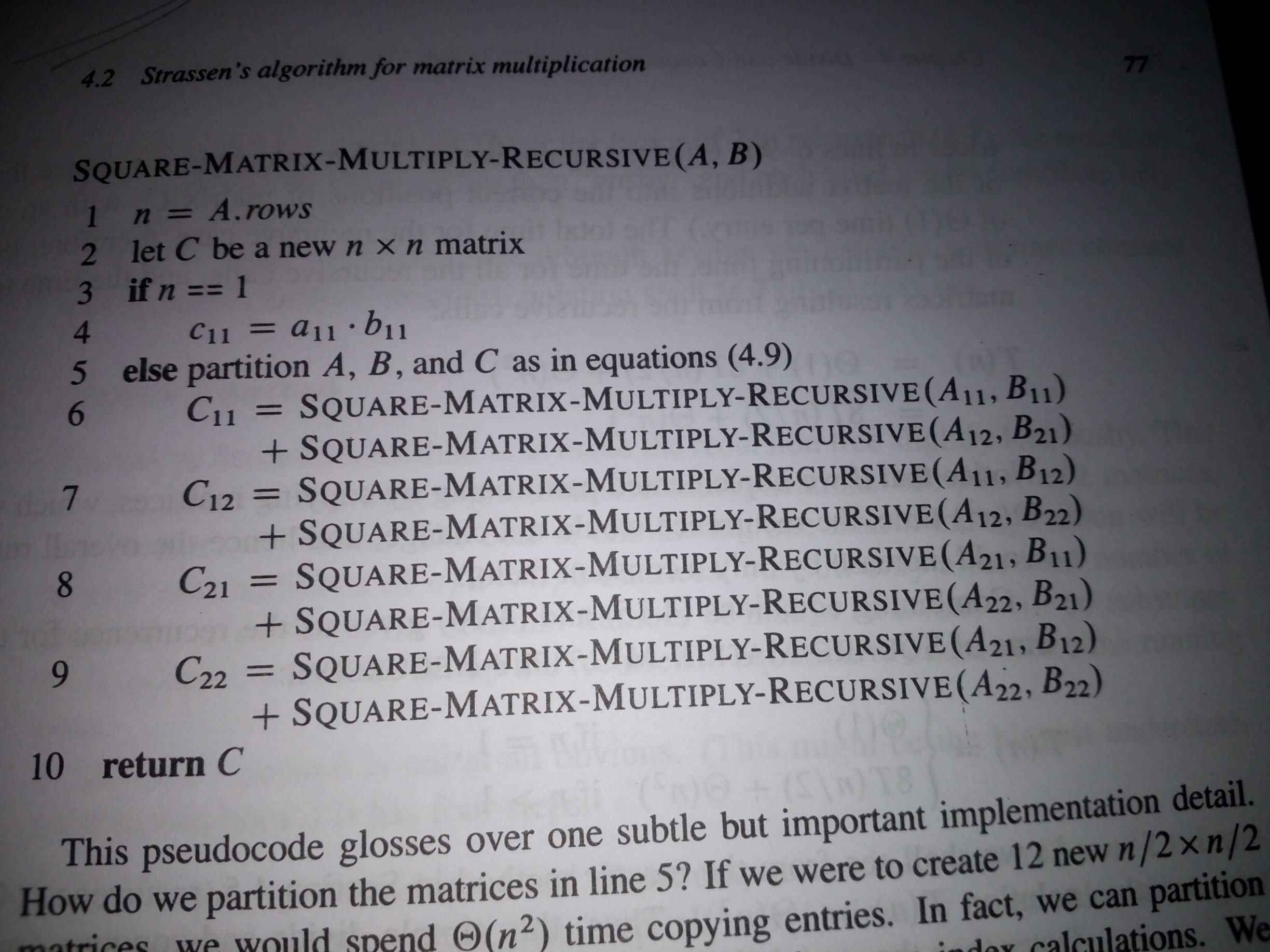The above image, describing Strassen's matrix multiplication algorithm, is from the book Introduction to Algorithms by Cormen, Leiserson, Rivest, and Stein. The algorithm multiplies two square matrices of order $n$, where $n$ is a power of $2$, i.e., $n=2,4,8,16,32,\dots$ and so on.
Can this algorithm be modified so that we can multiply two square matrices of order $n$, for all $n$?

